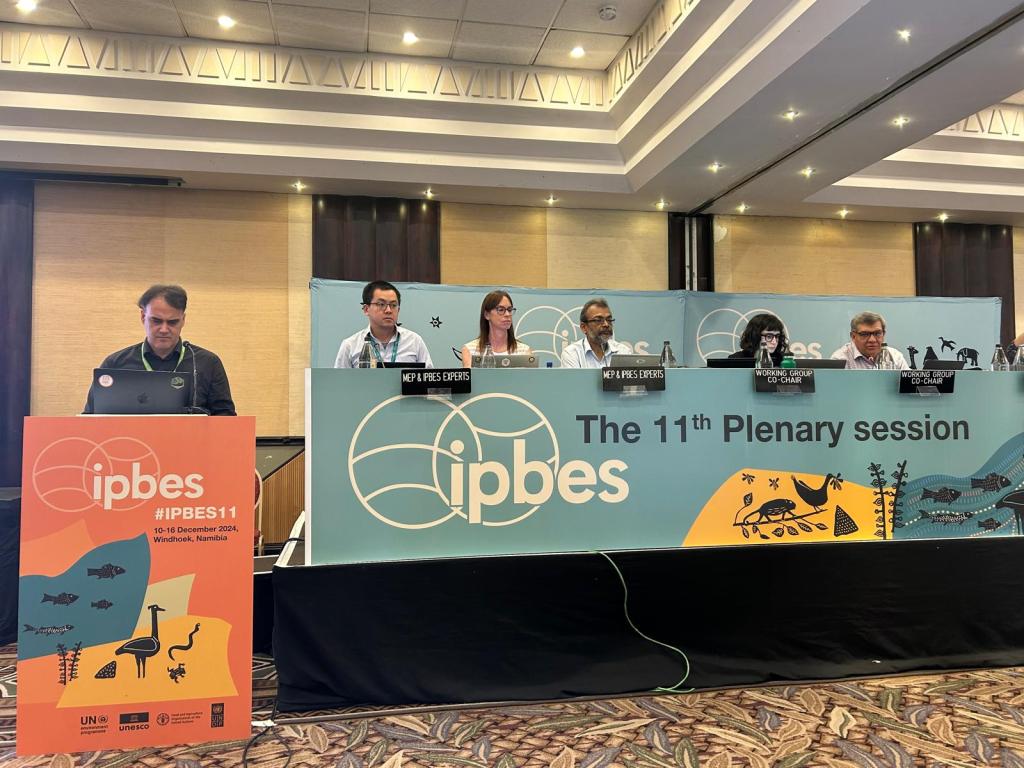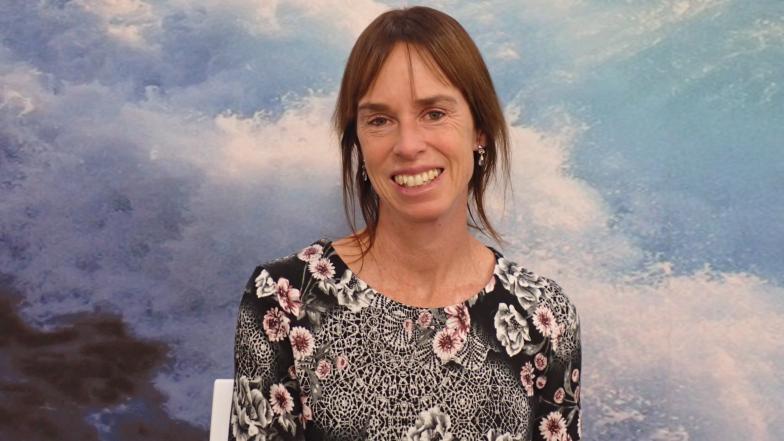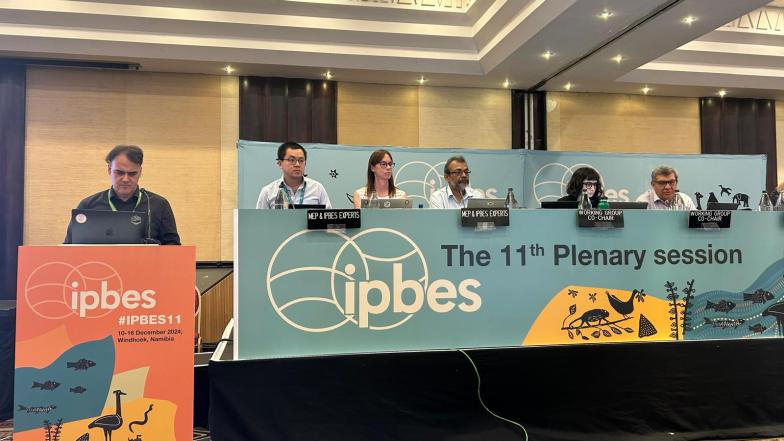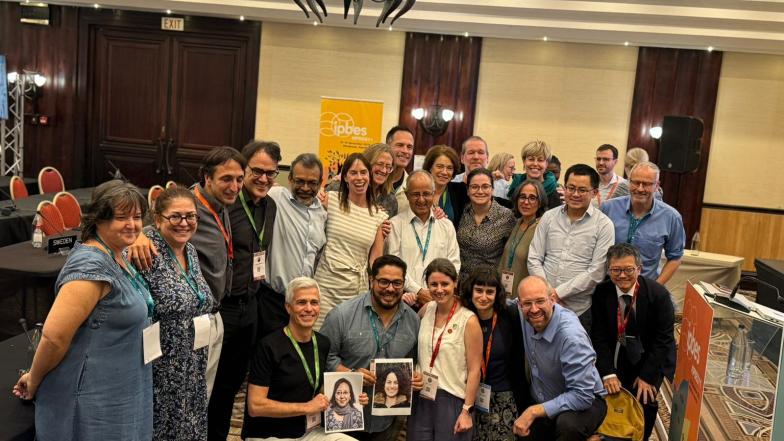Celebrating Global Impact: Professor Lynne Shannon Recognized for Her Contributions to IPBES

The University of Cape Town (UCT) proudly acknowledges the exceptional contributions of Professor Lynne Shannon from the Biological Sciences Department and UCT-MARiS (Marine and Antarctic Research centre for Innovation and Sustainability) to the Intergovernmental Science-Policy Platform on Biodiversity and Ecosystem Services (IPBES). Professor Shannon’s dedicated work has played a pivotal role in addressing critical global challenges surrounding biodiversity, ecosystem services, and sustainable development.
IPBES, an independent intergovernmental body, is globally recognized for strengthening the science-policy interface on biodiversity and ecosystem services. As part of this esteemed platform, Professor Shannon has contributed her expertise to collaborative global assessments, providing essential knowledge and guidance for policymakers striving to combat biodiversity loss and ensure equitable, sustainable ocean management.
Professor Shannon played a key role in the recent IPBES thematic assessment of the underlying causes of biodiversity loss, determinants of transformative change, and options for achieving the 2050 Vision for Biodiversity. Over the last three years, she served as the Co-ordinating Lead Author of Chapter 2, which focused on visions of a sustainable world for nature and people. Additionally, she was a contributing author for another chapter and co-author of the Summary for Policymakers, underscoring her significant contributions to this critical initiative.

Adding to her impactful contributions, Professor Shannon was part of the First-Ever African Plenary of IPBES. Held in Windhoek, Namibia, from 10 to 16 December 2024, this historic event marked the eleventh session of the Plenary of the Intergovernmental Science-Policy Platform on Biodiversity and Ecosystem Services (#IPBES11). Representatives from almost 150 governments gathered alongside some of the world’s leading scientific experts on biodiversity to tackle urgent challenges related to biodiversity loss and the degradation of nature’s contributions to people worldwide.
Among the most important agenda items for the 11th session were the consideration of two landmark IPBES assessment reports. The IPBES Nexus Assessment explored the interlinkages between crises in biodiversity, water, food, health, and climate change, offering decision-makers actionable, integrated solutions. The IPBES Transformative Change Assessment focused on the systemic changes necessary to conserve and restore biodiversity for a just and sustainable world.
1. IPBES Nexus Assessment Report Launch
Media Release (17 Dec 2024) - See link here: https://www.ipbes.net/nexus/media-release
2. IPBES Transformative Change Assessment Report Launch
Media Release (18 Dec 2024) - See link here: https://www.ipbes.net/transformative-change/media-release
Additionally, the Plenary explored the scope of a vital new assessment: the Second Global Assessment of Biodiversity and Ecosystem Services, a follow-up to the seminal 2019 IPBES Global Assessment, which highlighted that a million species of plants and animals face extinction. For more details about these reports, visit: www.ipbes.net/ipbes-11/primers.
See some more highlights from the event here.


A Champion for Marine Conservation and Equity
With Prof Shannon’s extensive background in marine biology, ecosystem-based management, and interdisciplinary research, her work highlights the interconnectedness of marine ecosystems and human well-being. Her contributions to IPBES assessments reflect not only scientific excellence but also a deep commitment to promoting ocean equity and justice in marine research and conservation.
“This assessment deals with the urgency of transformative change to address the underlying causes of nature’s decline and biodiversity loss. These include people’s disconnection from nature, and domination over nature and people; concentration of wealth and power; and the prioritisation of short-term economic and material gains,” stated Professor Shannon.
“It is only through fundamental, system-wide shifts in views (our ways of thinking, knowing and seeing the world), structures (our ways of organizing, regulating and governing) and practices (our ways of doing, behaving and relating) that we can begin to effectively curb biodiversity loss and nature’s decline,” she says.
“Visions are our aspirations of desirable human-nature futures – the possible futures we might envision for a just and sustainable world. Our analyses have shown strong associations of positive socio-economic and nature’s contributions to people outcomes for cases that are underpinned by clear visions,” she concluded.
More Insights from Professor Lynne Shannon
Professor Lynne Shannon shared her perspective on the importance of the processes behind these findings: “To me, the processes whereby visions are co-developed is just as important as the actual formulation of the visions themselves, as it is through clearly scoping, meaningfully engaging with others of diverse views and perspectives, and invoking imagination and creativity that we can co-produce flexible systems that can aspire to a better, just and sustainable world for us all – humans and non-human nature.”
Reflecting on her experience with the assessment, Professor Shannon added:
Driving Solutions for a Sustainable Future
Professor Shannon’s work within IPBES has focused on addressing the complexities of marine biodiversity, ecosystem degradation, and the urgent need for actionable solutions that benefit people and the planet. Her efforts align closely with UCT’s mission to advance research that informs policy and fosters meaningful, positive change amongst people and nature.
The global community faces unprecedented biodiversity challenges, particularly in marine environments. Professor Shannon’s contributions not only strengthen scientific understanding but also emphasize the importance of inclusive approaches that consider local communities, equity, and justice in conservation efforts.
To find out more about the IPBES11 Plenary Session, read the news article below:
About IPBES
The Intergovernmental Science-Policy Platform on Biodiversity and Ecosystem Services (IPBES) provides policymakers with objective, science-driven assessments of biodiversity, ecosystems, and their contributions to people. Established in 2012, IPBES fosters collaboration between scientists, policymakers, and stakeholders to address biodiversity loss and ensure sustainable development.
About Professor Lynne Shannon
Professor Lynne Shannon is an internationally recognized marine biologist based at the University of Cape Town’s Biological Sciences Department and has also recently been elected as Deputy Director for the UCT Marine and Antarctic Research centre for Innovation and Sustainability (UCT-MARiS). With a focus on ecosystem-based approaches, her research bridges science, society, and policy, contributing to sustainable ocean management and conservation worldwide.
For media inquiries, interviews, or further information, please contact:
Professor Lynne Shannon
Email: lynne.shannon@uct.ac.za
For IPBES inquiries and interviews, including post-embargo interviews with authors of the Nexus and Transformative Change reports, contact: media@ipbes.net OR www.ipbes.net or call:
+1-416-878-8712 or +49-176-212-09437
Request form: https://forms.gle/DYFHQJt4UdGH5R689